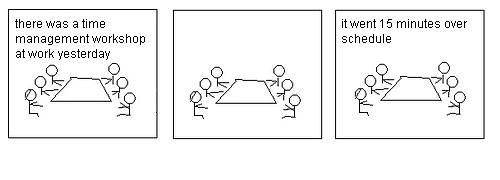
Tejal Shah found a way to solve a problem she is passionate about and work in the technology sector when she founded KidAdmit. Her experiences and startup story are rich with lessons learned and advice for other startup founders.
Tejal Shah’s Startup Story
Earlier this year Tejal decided that she wanted to leave finance and pursue tech, something that she had been interested in for years. Her search turned up a lot of dead ends regardless of her years of experience in finance and sales. She wasn’t getting the positions she was capable of and decided to create her own opportunity.
Tejals frustrations didn’t end with the job market. She has two sons Nishane (4 years) and Logas (18 months). During her pregnancy with Nishane she was overwhelmed with becoming a parent and didn’t get a head start on preschool applications. Parents in San Francisco start applications to preschools before birth if they want to get into specific top-tier schools. Tejal did not start the process until Nishane was about a year and a half old. She said, “When I did start applications it was complete chaos. There wasn’t a lot of information available online, it made finding and engaging schools really difficult. It was like having another full-time job, I spent so much time on it.”
Armed with her finance knowledge and her experience as a mother Tejal decided to make preschool applications easy for San Francisco parents. KidAdmit just launched in Beta on October 17th and already has almost 60 users. Tejal is really excited to build the user base and is spreading the news through word of mouth and mommy bloggers.
Lessons Learned as a Startup Founder
1. Plan Promotion Strategies Carefully
KidAdmit has mostly run smoothly, but Tejal had to learn the hard way that promotion only works when everything is up and running. One of her promotion strategies is to contact mothers that may be interested in KidAdmit’s services through local parenting and mothers groups. Recently she replied to a frustrated mother on the Golden Gate Mothers Group list serv. It happened to be the same day Amazon Web Services went down taking down the KidAdmit website and many others with it. She said, “I could have been more timely. I was generating leads and traffic to an inoperative website.”
Advice on Promotion Strategies:
- “Make sure everything is running on all cylinders before taking any action.” It’s just like spell check, it takes just a second, but no one wants to do it. When it is your business, these small details really matter.
- Create a promotion plan that is user centric and carefully examines possibilities. You might (should) be familiar with Use Case Scenario’s from developing your startup’s technology, it’s a great way to think about possible problems that are not software dependant as well. “A Use Case Scenario is a description that illustrates, step by step, how a user is intending to use a system, essentially capturing the system behavior from the user’s point of view.” (Source) Even if you promotion strategy is simple (think basic social media campaigns), thinking from a users point of view will help you get results and avoid possible mishaps.
- Prepare for a big spike in web traffic. The last thing you want is for your website to be down. Read this article from Jack Zhang of Load Impact for help accessing your web traffic.
2. Manage Time Effectively
Since the Beta launch was just weeks ago, it’s crunch time for Tejal. Having enough time to get everything done and prioritize KidAdmit’s next step is a challenge that she can tackle confidently. She says, “As a startup founder everyone is giving you really great advice. You want to make sure that you can act on those pieces of advice effectively.”
Advice on Time Management:
- Create a timeline and stick to it. “It is very easy to get sidetracked from what you are trying to do -whether it’s attracting users or finding funding- make sure that you map out what your agenda is.”
- Focus on tasks that will help you reach your goals. “There is so many things that can sidetrack you from your goals, even your work. Make sure that each one of your actions get’s you closer to a goal. If it’s not going to help you accomplish any of your goals, either table it or throw it out the window.”
- Keep it simple. “Have 3-5 things on your agenda at any given time.”
3. Support your Team
Tejal is sometimes surprised by what being a startup founder actually means. As a founder with two young children she really wanted to make KidAdmit’s culture family friendly. Recently her team had a coding issue that needed to be addressed quickly. One of her developers nannies had to leave unexpectedly and Tejal stepped in to take care for her child while she coded away. While Tejal never expected to have to use her mothering skills as a startup founder, she did it with pleasure to support her team.
How to Support Your Team:
- Be flexible. Being a startup founder may mean that you have to hold the marketing, business development, product strategist, or even mother hat at any time.
- Be a team leader. “Keep communication lines open to your team. Make sure everyone is on the same timeline and is motivated to meet current goals.”
- Find a balance with your team and personal life. “Everyone has life happening. Making sure that we are all on the same page and working towards the same goal is really important.”
Tejal has a great attitude and is really excited about solving a problem parents are challenged by. She says, “The real nitty gritty of making a startup successful is challenging. It’s really up to us to do it right and act on the idea in a proper manner.” I am sure that her strategies of planning promotion carefully, managing time effectively and supporting her team will help KidAdmit become a success in San Francisco.
How do you tackle each of the issues that Tejal has been dealing with? Do you have a great time management or promotion strategy? We’d love to hear from you. Leave a comment below!
Want to learn more about @KidAdmit? Connect with Tejal on Twitter @tejaltshah







